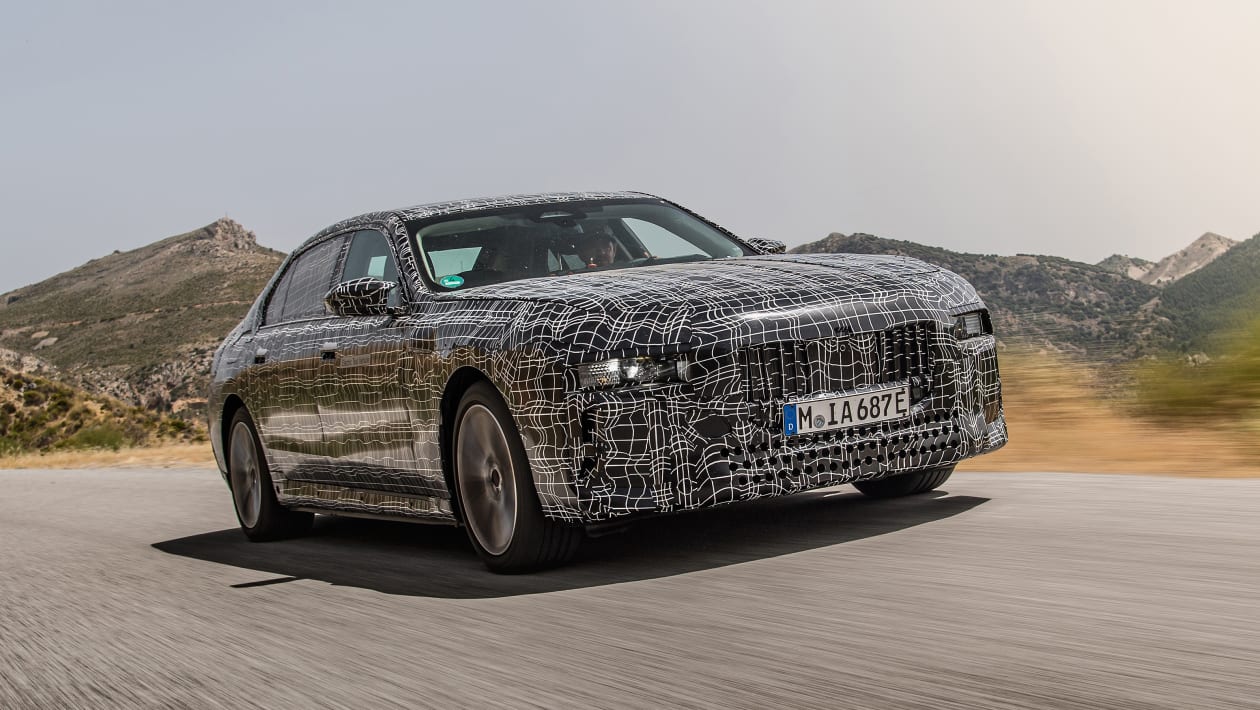BMW is preparing to launch the seventh generation of the 7 Series, which will become a new competitor such as the new Mercedes EQS and rugged Tesla Model S when it starts selling in late 2022, along with the seventh generation of the 7 Series Range with internal combustion engine.
These new official images show the electric vehicle tackling the later stages of its development program, with the brand’s engineers testing the performance of its battery in warm weather. These are known to be difficult conditions for an electric vehicle, as the heat has a negative effect on the amount of energy the batteries can store – and thus reduces the range.
The i7 prototype in the official “espionage recordings” from BMW is still heavily camouflaged, so there is nothing new to discover on the design front. The shape of the car is more that of a traditional three-box sedan than that of the ultra-curvy hatchback-style EQS. A long bonnet and high shoulder line combine with a low nose, while the rear follows the classic large sedan format.
BMW will also introduce a new headlight design that was first seen on the facelifted version of the X7 SUV. The current car’s combined daytime running lights and main headlights are being abandoned in favor of split units, with the latter being placed lower down in the bumper.
As is common with newer BMWs, the next i7 (and its internal combustion sister car) will feature giant kidney grills, while the streamlined nose is reminiscent of that of the iX SUV. Buyers can also choose between standard and long versions.
BMW has not yet published any technical specifications for the electric i7. However, the car’s suspension, steering, brakes, driving dynamics and stability systems are designed to “take the balance between sportiness and driving comfort typical of the brand’s luxury sedans to the next level,” according to the company.
Given that the electric vehicle will be on par with the Mercedes EQS, we expect BMW to have a maximum range of around 400 miles to stay competitive in this segment. Thanks to its 107 kWh battery, the EQS can do 484 miles on a single charge.
The i7 is expected to be based on BMW’s modular CLAR platform and powered by fifth generation eDrive technology, which is also used in the new i4 sedan and iX. The use of this EV drive system should drastically shorten production times, as the electric motor, gearbox and electronics are combined in one unit. The layout also reduces the overall mass and size of the system, which translates into a little more range.
The i4 and iX already share the same drive systems – and we assume that the i7 will follow suit. We assume that the electric sedan with the 516 hp dual-engine all-wheel drive setup of these cars will hit the market in the xDrive50 flagship guise.
This system has enough grunt for a time from 0 to 100 km / h of 4.6 seconds and a top speed of 124 km / h in the iX – numbers that the i7 should reach or even surpass, as it is a bit lighter and more aerodynamic. We expect that a smaller 322 hp xDrive40 variant will also be added to the range and offer a time from 0 to 100 km / h of around six seconds. An M variant was not confirmed.
The i7 will likely also be offered with the same 71 kWh and 105.2 kWh batteries as the iX. That should be enough for a range of around 400 kilometers on the smaller device, with the larger battery clocking a maximum of 380 kilometers. Fast charging is also offered.
The prices for the new i7 have not yet been determined. For reference, the iX starts at just under £ 70,000 while the i7’s biggest rival, the Mercedes EQS, costs almost £ 100,000. Expect the i7 to be somewhere between these two cars when it goes on sale.
Click here now to see our list of Longest Range Electric Cars for sale right now …

